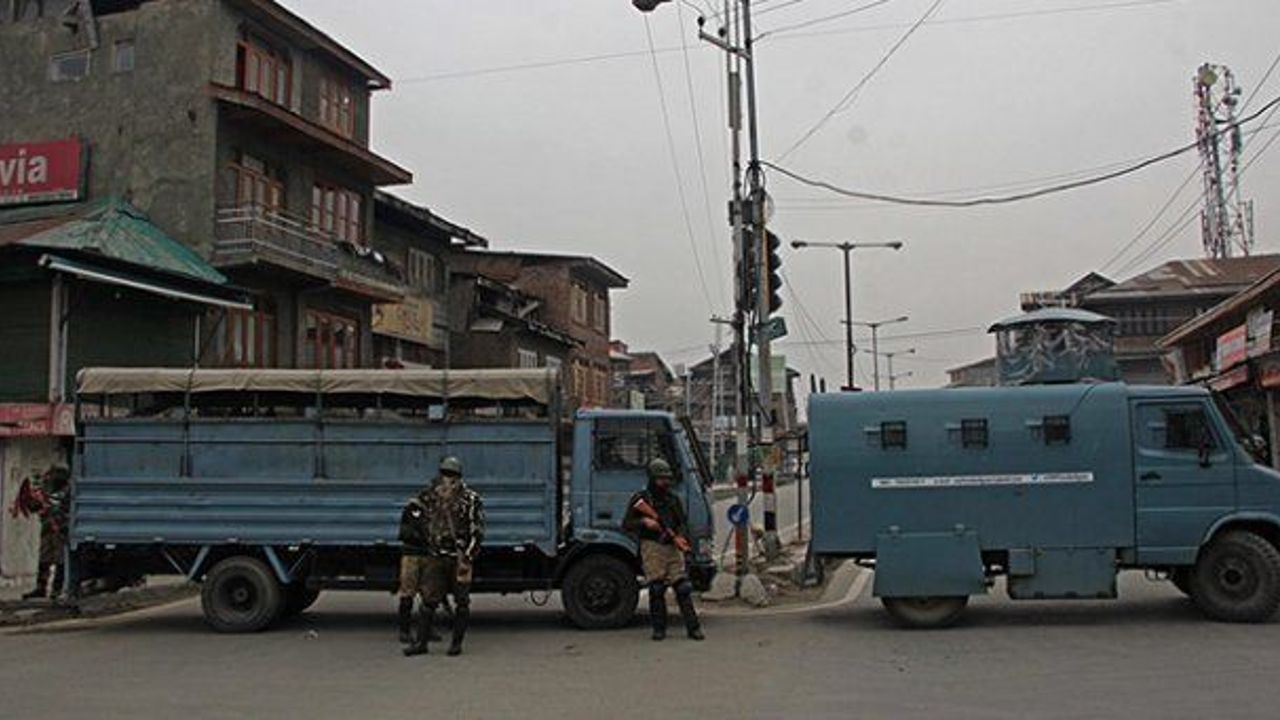India’s controversial orders in Kashmir criticized
Method adopted to make constitutional amendments was not ‘correct’, says former advocate general of Kashmir

As tensions between India and Pakistan are likely to de-escalate following the release of a pilot of a downed Indian jet, two controversial orders passed by New Delhi on Thursday have stirred apprehensions in Kashmir.
While one of the orders by the Indian Home Ministry is to ban Jamaat-e-Islami Kashmir -- a socio, religious and political organization --, calling it a threat to India’s internal security; another order passed by the Cabinet, headed by the Indian prime minister, approved an ordinance amending the special position of Jammu and Kashmir.
Jehangir Iqbal Ganai, former advocate general of Kashmir, told Anadolu Agency the way these constitutional amendments were made was a “problem”.
“It seems that the method adopted was not correct. If you read the Article 370, it says any amendment must have the concurrence of an elected government in Jammu and Kashmir, and not that of a nominee of the government,” Ganai said.
Jammu and Kashmir has not had an elected government since June 2018, and is currently being run by an appointed governor under the president’s rule.
Irshad Mahmud, an Islamabad-based expert on Kashmir affairs, thinks that the move was a step towards “integration”.
“Abolishment of the held valley’s special status, and ultimately its merger with mainstream India, is New Delhi’s longtime dream. This order is the first attempt towards that,” Mahmood, who heads an Islamabad-based think-tank Center for Peace, Development and Reforms, told Anadolu Agency.
All major Kashmiri pro-India political parties called the move a breach to the special status of Kashmir within Indian Union and announced that they were going to challenge the amendments, with former Chief Minister Mehbooba Mufti calling them a “constitutional vandalism”.
Ban on Jamaat-e-Islami Kashmir
The other controversial order that banned the Jamaat-e-Islami was passed by the Home Ministry of India.
The government banned the organization for a period of five years, saying if it was not banned, “it was likely to escalate secessionist movements, support militancy and incite violence” in India.
Over the past week, the Indian forces in Kashmir arrested over 300 leaders and activist of the organization, including its top leadership.
“The Modi government has been consistently claiming successes against militancy in Kashmir and all of them were proved false by the Pulwama attack,” Sheikh Showkat, a political analyst told Anadolu Agency.
The Jamaat-e-Islami, Showkat said, had around 6,000 basic members but it has far more clout in the entire region.
“It is an organization with an ideology, a world view, and you can defeat them with another world view, not by a ban,” he added.
Mahmud shared a similar view.
“Ban on Jamaat is not for the first time. It had already been banned by Shaikh Abdullah’s [former chief minister] government in 1977. But the party continued to operate under a different name -- Falah-e-Aam Trust”, he noted.
“On top of all, I believe the ban will not survive in the court of law as Jamaat is a major political party, especially in south Kashmir. It has distanced itself from militancy decades ago. Even then, if the ban survives, it will operate under some other name as it did in the past,” he observed.
Mahmud warned that the ban on a political party like Jamaat would be detrimental for India itself.
“If there is no political outlet for the people, especially youths, they would be more prone to militancy,” he opined.
Background
The Jamaat-e-Islami Kashmir was created in 1942 and differs significantly from Jamat-e-Islami Hind (India) and Jamat-e-Islami Pakistan in its orientation and ideology.
From 1965 to 1987, the organization participated in elections from Kashmir, including the Assembly as well as Parliamentary elections. In 1990, soon after the armed rebellion began against Indian rule in Kashmir, the group joined the “resistance politics.”
Believed to be the political wing of the militant outfit Hizbul Mujahideen, Jamaat-e-Islami distanced itself from the outfit in 1997.
Banned for the first time in 1975 and then in 1990, this is the third time the organization has been banned.
Jammu and Kashmir, a Muslim-majority Himalayan region, is held by India and Pakistan in parts and claimed by both in full. A small sliver of Kashmir is also held by China.
Since they were partitioned in 1947, the two countries have fought three wars -- in 1948, 1965 and 1971 -- two of them over Kashmir.
Also, in Siachen glacier in northern Kashmir, Indian and Pakistani troops have fought intermittently since 1984. A cease-fire came into effect in 2003.
Some Kashmiri groups in Jammu and Kashmir have been fighting against Indian rule for independence, or for unification with neighboring Pakistan.
According to several human rights organizations, thousands of people have reportedly been killed in the conflict in the region since 1989.







